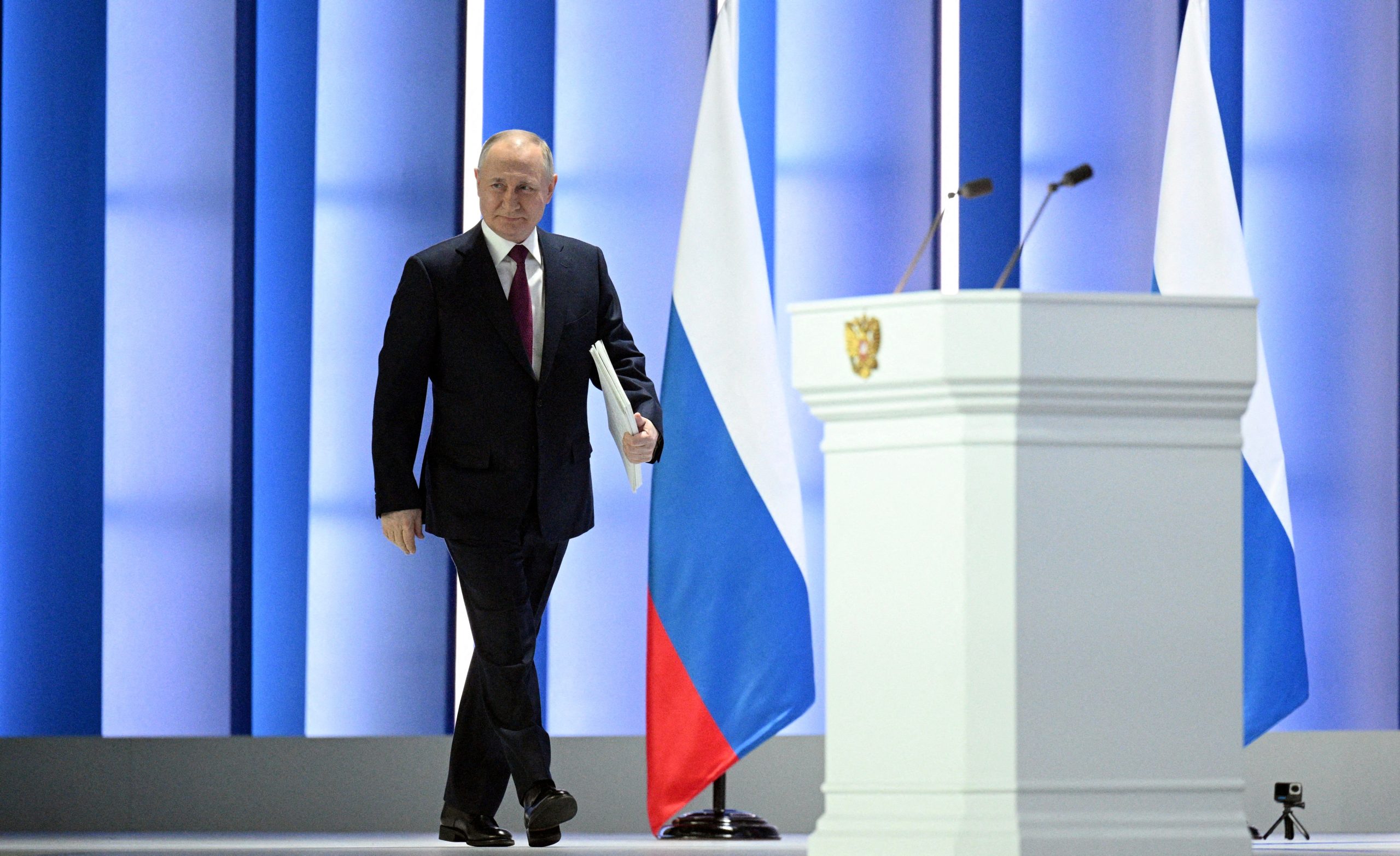
Lauren C. Moye, FISM News
[elfsight_social_share_buttons id=”1″]
Putin finally agreed that the war in Ukraine was a matter of survival, but made the declaration that it was a historical challenge to determine Moscow’s survival against Western nations.
“They have one goal: to disband the former Soviet Union and its fundamental part – the Russian Federation,” Russian President Vladimir Putin told Rossiya 1 state television about Western nations in an interview released earlier on Sunday.
According to Putin, the West wants to divide up Russia to gain access to its raw materials. This could lead to the cultural genocide of people groups living in Russia.
“I do not even know if such an ethnic group as the Russian people will be able to survive in the form in which it exists today,” Putin said.
The U.S. and NATO allies have denied this plan, claiming instead that the hefty financial pledges and military equipment contributions are simply helping Ukraine defend against the invading Russians.
The General Assembly of the United Nations commemorated the first anniversary by voting that Moscow should withdraw troops from Ukraine. This body of 193 member countries also called for a “comprehensive, just, and lasting peace.”
Russia’s senior diplomat accused the West of “arm twisting” to gain the support.
“The methods of achieving the result are again ‘cowboy’,” Dmitry Polyansky, Russia’s deputy U.N. ambassador, said on the Telegram messaging platform.
Polyansky said he calculated “almost 30 pairs of arms” twisted to secure the vote on the U.N. resolution, but did not provide any evidence for these accusations.
US ACCUSED OF DISRUPTING RUSSIA’S FOREIGN RELATIONS
Similarly, Russia’s Deputy Foreign Minister Mikhail Bogdanov accused the U.S. of undermining Russia’s relationship with Africa by “exerting unprecedented pressure” on African countries in a statement made on Saturday.
St. Petersburg is set to host the second Russia-Africa summit in July.
“The United States and its allies are conducting an unprecedented campaign for the political and economic isolation of Russia, including the disruption of the Russian-Africa second summit in St. Petersburg,” Bogdanov told TASS.
A critical element leading to this accusation is the presence of the wide-sweeping sanctions placed on Russia by global leaders in response to their aggression against Ukraine. The U.S. warned African countries in August against purchasing anything beyond grain or fertilizer from Russia, or else these countries might also have actions taken against them.
The U.S. also held a summit with African leaders in 2022 in Washington.
Bogdanov has accused Washington of making “fabrications” against Moscow but did not list evidence.
US SUPPORT OF UKRAINE: CHALLENGES AND STATISTICS
During the first year of the war, U.S. Congress committed over $113 billion in support for Ukraine. This money was dedicated to four major spending packages. The Committee for a Responsible Federal Budget says it’s likely that more will come.
“Of the $113 billion approved in 2022, about three-fifths ($67 billion) has been allocated toward defense needs and the remaining two-fifths ($46 billion) to nondefense concerns such as general Ukrainian government aid, economic support, and aid for refugee resettlement,” the nonpartisan U.S. budget analysis thinktank said in a statement.
The large aid packages are a matter of concern for some Republicans on Capitol Hill. One of the most notable is Rep. Andy Briggs (R-Ariz.), who has previously called for an end to Ukraine war funding while accusing President Joe Biden of warmongering.
Biden will also face the continued challenge of getting weapons and ammunition to Ukraine. For example, there have been 32 military drawdowns totaling approximately $19.2 billion of military equipment in the quest to support Ukraine.
While the U.S. is not alone in supplying equipment and support to Ukraine, there are signs of growing disagreement as Ukraine’s needs escalate. For example, the global debate over the supply of German-made Leopard tanks caused a delay in providing both the tanks and training. The similarly promised U.S. M1 Abrams tanks are estimated to be months out from delivery to Ukraine.
It remains to be seen what these kinds of shipment delays will mean for Ukraine’s spring counter-offensive, which will be crucial to Kyiv when it comes to lessening the time spent at war. This, in turn, will most likely be a factor in how the U.S. continues to support the embattled Ukrainians.
